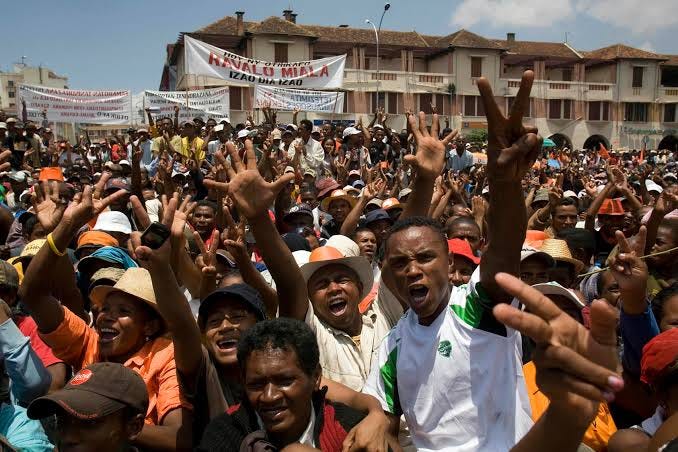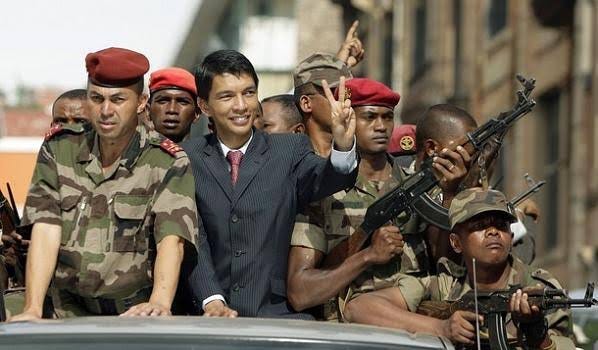What the world can learn from Madagascar
Politics of the ‘Great Red Island’, and the upcoming elections.
Madagascar citizens in an election campaign
Credit:Joao Silva(NYT)
On 16th November the 4th largest island in the world will be having elections. The election is crucial to them because it strengthens their democracy which has been in ups and downs since the 2009 coup removing Marc Ravalomanana and the military transfering power to Andry Rajoelina
After having a look at their 2010 constitution and whats going on right now I have learnt a few things;
•Incumbent President surrendering power
Andry Rajoelina the incumbent President who comes from the ruling Tanora malaGasy Vonona (TGV) party is seeking a third mandate after previously leading the transitional government from 2009-2014 and winning the 2018 election.He has resigned in September as the constitution requires that the incumbent president transfer power to the president of the Senate if they run for reelection. This is prescribed in Article 46 of the Constitution of Madagascar and this is done sixty days before the Presidential ballot
This made me wonder, in my political researches I have been conducting never have I ever before met such a condition in elections of an incumbent. Its advantageous because it assures peaceful transfer of power if the incumbent tends to lose.
•Rajoelina's citizenship controversy
Andry Rajoelina(Then Madagascar’s President with Emmanuel Macron France’s President)
Credit:Bertrand Guay(AFP)
Andry Rajoelina (49) the incumbent who is running for the highest seat in the country is a Malagasy citizen which is the requirement of running for the Presidency, the biggest issue in the country is speculations of Rajoelina holding a French passport too hence citizenship. That makes him having another citizenship which becomes a disqualification, the incumbent has denied such allegations. Madagascar doesn't allow a person with dual citizenship to run for the Presidency unlike other countries that allow like Arzebaijan,France,United Kingdom and Liberia who their former President Hellen Sirleaf had a Germany citizenship and their current President George Weah who has a French citizenship too. I support Madagascar's, position for such an office one should have one nationality, proves loyalty and patriotism.
•Age of contesting for the Presidency
Andry Rajoelina after being put in power by the military in 2009 in the coup against Ravalomanana.
Pic via dailymaverick.co.za
Per Article 46 of their constitution it allows a person from the age of 35 years old to become an aspirant in that position. This has allowed young people to get their chance to attempt and some lead. A good example is Rajoelina who entered as the President at 35 years old in 2009 after Ravalomanana being ousted. This might seem like a simple point but alot of countries don't allow citizens age below 40 to contest for the Presidency.(Tanzania being among them)
•Two-round system(TRS)
This system is when no candidate receives a majority of the votes in the first round, so a run-off will be held. The system has some some advantages and it is practiced in countries like France,Mali and Sierra Leone
Its main advantage has been that it allows voters to have a second choice for their chosen candidate or change their mind in the favoured choice.
Let us wish Madagascar peaceful elections on 16th November. Currently there are ongoing protests in the streets opposing Rajoelina / candidacy due to his acquisition in 2014 of French Citizenship which is contrary to the law as the law demands a contender for Presidency to have only the Malagasy citizenship. The election has 13 candidates including two former leaders Marc Ravalomanana and Hery Rajaonarimampianina who both have served as the sixth and eighth Presidents of Madagascar respectively.


